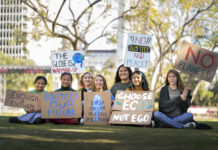Project Reference: 2020-1-PT02-KA105-006726
Programme: Erasmus+
Action Type: Youth Mobility
Countries Involved: 9
Start Date: 01 May 2020
End Date: 30 November 2021
EU Grant: €33,530.00
Why This Project Was Created
Schools are an important place for socialisation, learning, and developing new skills for life.
However, in today’s fast-changing, digital world, many young people are losing interest in education. Easy access to information online and weaker social connections are affecting their motivation.
This has led to growing problems such as:
-
Social exclusion
-
Early school leaving
-
Higher numbers of NEET youth (Not in Education, Employment or Training)
-
Low skills and fewer job opportunities
The project recognised the lack of key skills for lifelong learning as a major cause of these issues. It aimed to train youth workers so they could pass on knowledge, values, and skills to young people—especially those with fewer opportunities.
Sport was seen as a powerful tool in this process, helping with social inclusion, education, training, and health.
Main Needs Identified
The project set out to:
-
Train youth workers to gain new skills and promote inclusion, ethics, cooperation, and responsibility.
-
Motivate young people, especially from disadvantaged backgrounds, to take part in activities.
-
Offer opportunities for personal and social development through inclusive and participatory practices.
-
Raise awareness about the importance of education.
-
Encourage belonging, sharing, and solidarity through community participation.
Goals
The project worked towards:
-
Developing key competences for lifelong learning in young people.
-
Empowering youth workers with new tools and methods.
-
Promoting social inclusion for disadvantaged youth.
-
Using non-formal education (NFE) as a main method for skill development.
-
Adapting activities to the needs and expectations of young people.
-
Reducing early school leaving and failure rates.
-
Encouraging respect, tolerance, active citizenship, and solidarity.
How It Was Done
1. Preparation Activities
-
Local meetings, networking, and visibility actions in each partner country.
-
Mostly online due to the COVID-19 pandemic.
-
May 2020 – September 2021.
2. Mobility Activity
-
A Training Course for youth workers.
-
Held in Lisbon, Portugal, from 27 September to 1 October 2021 (+2 travel days).
3. Dissemination Activities
-
Seminars, workshops, forums, and meetings, both online and face-to-face.
-
Organised in each partner country, especially after October 2021.
4. Monitoring & Evaluation
-
Continuous feedback during all project phases.
-
Mostly online due to pandemic restrictions.
Who Participated
Youth Workers (40 total)
-
Aged 18+
-
Many from disadvantaged backgrounds
-
Experienced in working with young people with fewer opportunities
Trainers (3 total) – Carlos Santos, Fábio Capuano, and José Dias
-
Experts in social inclusion and lifelong learning skills
-
Strong background in NFE, informal education (IE), and formal education (FE)
-
Skilled in leading inclusive, engaging, and motivating activities
Results
Tangible
-
A Manual of Good Practices for youth work and sport-based inclusion.
Intangible
Participants improved their:
-
Literacy and multilingual skills
-
Maths and science basics
-
Digital competence
-
Social and personal skills
-
Citizenship and entrepreneurial abilities
-
Cultural awareness
Impact
The project led to:
-
Better-trained youth workers in both professional and personal skills.
-
Increased awareness of social and educational challenges in local communities.
-
Greater use of NFE for learning.
-
Promotion of the Europe 2020 Strategy and Erasmus+ role in youth inclusion.
-
Stronger European identity and community engagement.
-
More youth participation in civic and democratic life.
-
Growth of European partnership networks for inclusion projects.
-
Sustainability and wider reach of youth-focused initiatives.










